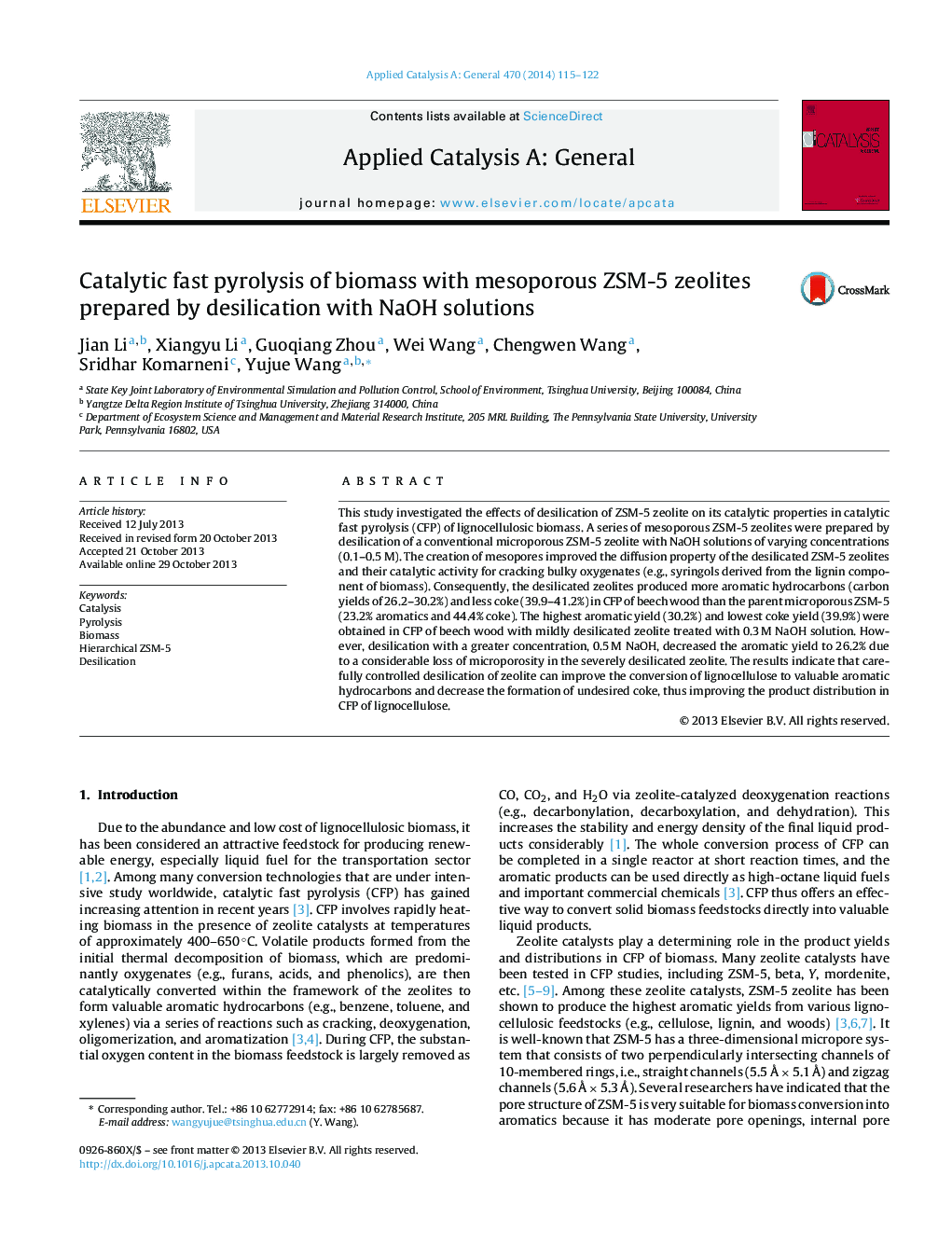| Article ID | Journal | Published Year | Pages | File Type |
|---|---|---|---|---|
| 39986 | Applied Catalysis A: General | 2014 | 8 Pages |
•Mesoporous ZSM-5 zeolites were prepared by desilication of microporous ZSM-5 zeolite.•Mesoporous ZSM-5 improved the conversion of biomass in catalytic fast pyrolysis.•Desilication increased the aromatic yield in catalytic fast pyrolysis of beech wood.•Desilication decreased the coke yield in catalytic fast pyrolysis of beech wood.
This study investigated the effects of desilication of ZSM-5 zeolite on its catalytic properties in catalytic fast pyrolysis (CFP) of lignocellulosic biomass. A series of mesoporous ZSM-5 zeolites were prepared by desilication of a conventional microporous ZSM-5 zeolite with NaOH solutions of varying concentrations (0.1–0.5 M). The creation of mesopores improved the diffusion property of the desilicated ZSM-5 zeolites and their catalytic activity for cracking bulky oxygenates (e.g., syringols derived from the lignin component of biomass). Consequently, the desilicated zeolites produced more aromatic hydrocarbons (carbon yields of 26.2–30.2%) and less coke (39.9–41.2%) in CFP of beech wood than the parent microporous ZSM-5 (23.2% aromatics and 44.4% coke). The highest aromatic yield (30.2%) and lowest coke yield (39.9%) were obtained in CFP of beech wood with mildly desilicated zeolite treated with 0.3 M NaOH solution. However, desilication with a greater concentration, 0.5 M NaOH, decreased the aromatic yield to 26.2% due to a considerable loss of microporosity in the severely desilicated zeolite. The results indicate that carefully controlled desilication of zeolite can improve the conversion of lignocellulose to valuable aromatic hydrocarbons and decrease the formation of undesired coke, thus improving the product distribution in CFP of lignocellulose.
Graphical abstractFigure optionsDownload full-size imageDownload high-quality image (194 K)Download as PowerPoint slide
